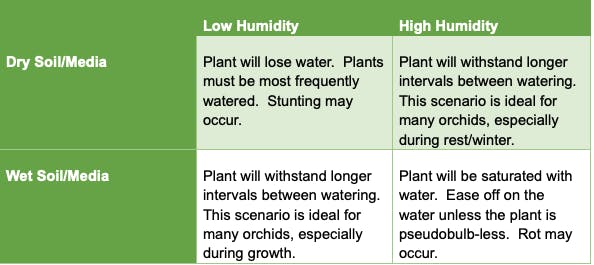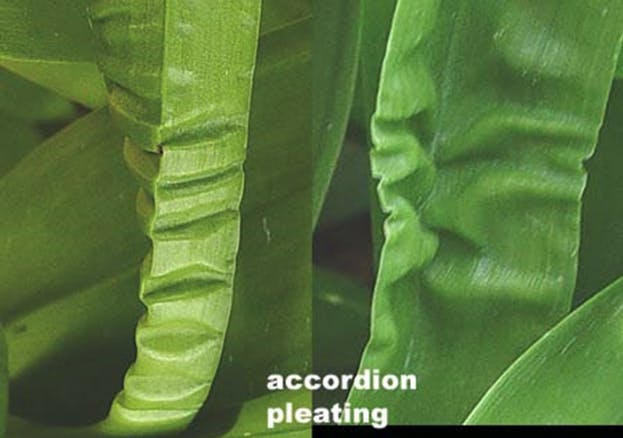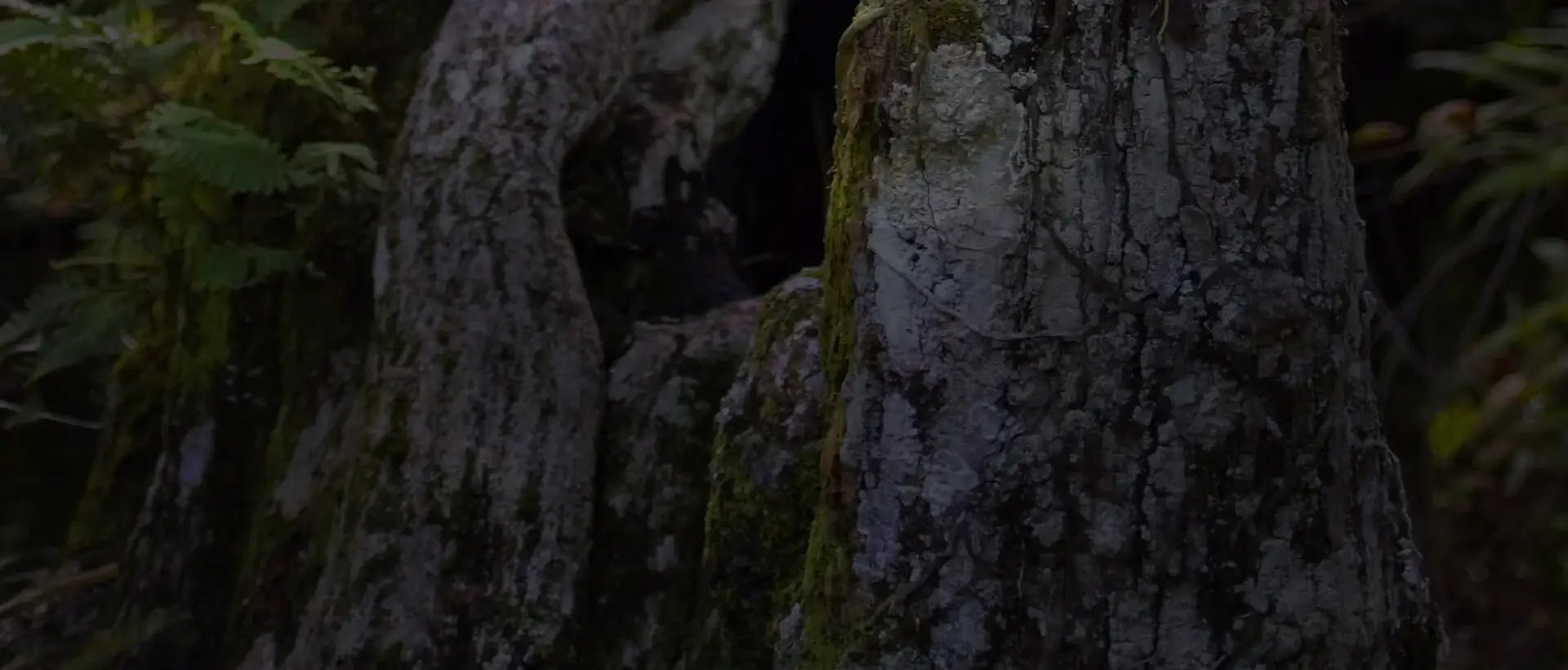Water Uptake
Orchids absorb the majority of their water just like any other plant does – through their roots. Though, orchids, like other epiphytes (orchids are epiphytes), have the ability to absorb a small percentage of water through their leaves and canes[1]. What that percentage is exactly varies from plant to plant, but the percentage is still small, about < 5%. Epiphytes have evolved structures and mechanisms to help them absorb water or save water during periods of drought.
Morphologically, some orchids, especially Dendrobium[2], have evolved trichomes (hairs) to help absorb ambient humidity when the humidity is extremely high[3], but it has not rained for a long time – typical of tropical savanna climates with humid dry seasons[4] or other climates with high humidity and low rainfall. The “black-haired Dendrobium” (Section Formosae) are perfect examples of this.
What is the relationship between water and humidity for plants?
Plants absorb water passively, which means that it’s because of physics that water enters the plant. Plants absorb water through their roots, and the water vapors transpire (evaporate) from the shoots and leaves. This creates a straw of water through the plant – the cohesive/adhesive nature of water pulls itself up through the plant to fill the void left by transpiration. When the humidity is high, less water transpires, and the plant does not need to be watered as often, and the media that the plant is growing in will retain water for longer.
The chart below describes the attributes of different water and humidity scenarios:

Will watering affect growth? What kinds of growth does watering affect?
Because plant cells are mostly water, the amount of water given will always affect growth. Water should always be thorough with respect to its two components – amount and frequency. The amount and frequency of water given can signal to the plant what season it is, as well as affect development and longevity of new shoots and flowers. During growth and cellular development, the amount of water present during the formation of plant cells will determine the cell size. Plant cells are more or less boxes that have a permanent (but flexible) shape that is formed when the cell develops. During ideal conditions, the cells form proper plump box shapes, and all the plant parts form correctly.
Underwatering Orchids
Too little water causes cells to become too small, and stretches of dryness that are too long followed by a sudden deluge of water can lead to some orchids developing “accordion growth”, as seen in the figure below.

Figure 6 - Accordion pleating growth of thin-leaved orchids. Courtesy, Cloud's Orchids
Overwatering Orchids
Too much water is known as “overwatering”, though it’s really a misnomer. Overwatering is really when the media that the orchid is growing in does not dry out fast enough. This can be from too frequently watering, adding too much water, or from other conditions that affect transpiration and evaporation from the media like – not enough airflow, too high humidity, or not enough light. Remember, an environment is in cyclic flux, so it’s not just about how much water you are adding, but also how much water is leaving!
Watering and Flowering
Orchids need the most water during flowering, even if they otherwise would not tolerate being so wet. Water availability is critical for floral longevity. Most orchids are programmed to bloom during peak ideal conditions for their pollinators, so naturally, most bloom times are in spring – (which as we know, really just means the beginning of favorable weather). Flowers are sensitive organs that are designed for reproduction, and over millions of years have evolved from leaves. That means that just like leaves, transpiration still occurs, and water is lost. This makes flowers a liability during dry spells.
Knowing that, if you have an orchid that is growing just fine, but not blooming, try watering more in the spring, or just before (and during) the season that it’s supposed to flower. You may be surprised!








